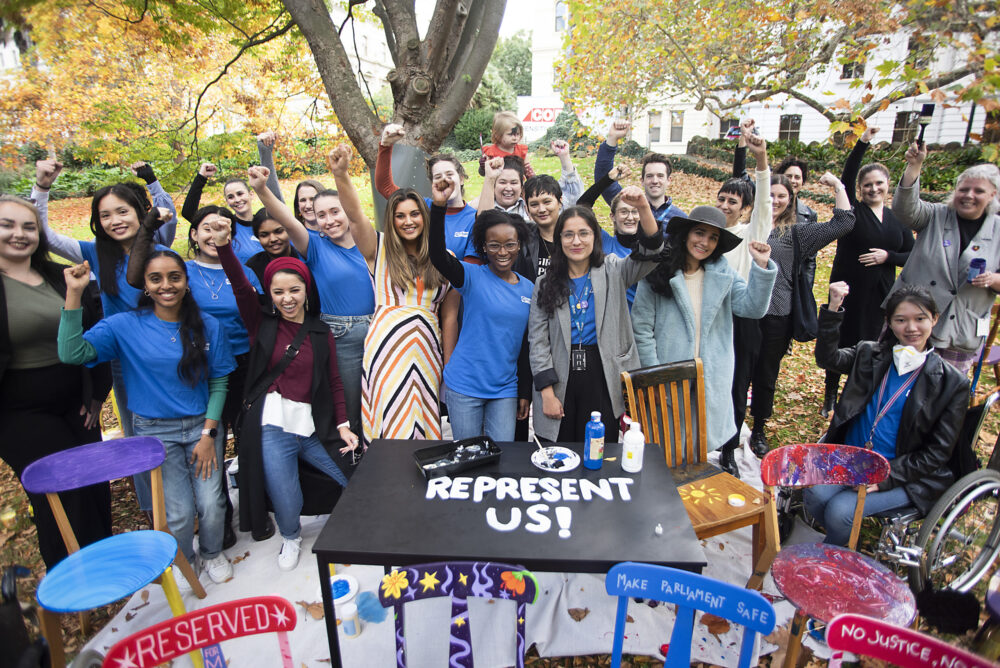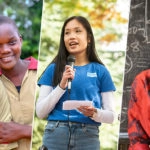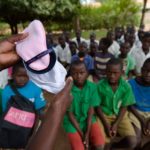Media Centre - Media release - 26 May 2022
“The future looks extraordinarily bright”: Australia’s historic vote for diversity this federal election is life-changing for the next generation

Australia is looking forward to the most representative parliament in the country’s history with both the upper and lower houses looking a lot more like the diverse and multi-cultural society it is meant to embody, according to charity for girls’ equality Plan International Australia.
The representation of women is the big winner with early, conservative estimates suggesting up to a 30% increase in the House of Representatives. Analysts have estimated the number of women has grown from 48 to 59 members with the possibility of it climbing even higher. Of the lower house seats called on Sunday as having changed hands, an overwhelming majority of 14 went to women.
“We are constantly hearing from our youth ambassadors and the young people we speak to that they are put off politics because they do not see themselves reflected in the make-up of parliament,” said Susanne Legena, CEO of Plan International Australia.
“Our Represent Us campaign found that inclusive representation can transform the lives of young girls. We found that diverse representation can lift self esteem (in 66% of cases) and widen career choices (56%). Just the simple fact of the election of these diverse MPs is life-changing for the younger generation.”
“The Australian people have delivered a decisive vote for change. A vote for a more equal parliament, a more diverse parliament and a more inclusive parliament. All of a sudden, the future looks extraordinarily bright,” added Plan International Australia ambassador Jamila Rizvi.
“To see women of colour racking up seats in Australian politics embodies the diversity and representation that has been longed for many decades. It’s brought me much hope, and I see it acting as an invitation for many young women into politics” said VCE student Harleen.
For the first time the House or Representatives will have three seats held by First Nations people: Linda Burney in Barton, Marion Scrymgour in Lingiari and Dr Gordon Reid in Robertson, and seven seats in the Senate, with First Nations women holding seven of these seats.
“The results of this election reflect the shared desire for a shift in Australian politics towards political transparency and more diverse representation,” said Siena, Plan International Australia youth activist.
“The ball has well and truly started rolling for diversity in politics,” added Plan International Australia ambassador Yasmin Poole.
Dai Le is the first MP to arrive in Australian as a refugee and we have seen a significant spike in the representation of Asian-Australians, from Australia’s new Foreign Minister Penny Wong, to Chinese-Australian Sally Sitou who won the seat of Reid and Malaysia-born Sam Lim, who migrated to Australia in 2002, and took the seat of Tangney with a huge swing of 11.7%.
“This election has brought some very exciting and must-needed change to Australian politics. Having Dai Le win Fowler and Penny Wong become the new Foreign Minister is a win for representation, but we still have a lot of progress to make. We should celebrate these wins, but also push for more change,” added Jazmin, also a youth activist with the charity.
But there is still room for improvement. In an online Leadership Language Index created by Dr Kirstin Ferguson last week, the leadership columnist analysed the words used by both leaders during their election campaign. While “Childcare” was mentioned 113 times and “Economy” mentioned 108 times, the phrases “sexual harassment”, “domestic abuse” and “violence against women” were not mentioned a single time by either party in the entire six week campaign.
“This election result leaves me hopeful that the voices of women and young people will be listened to when it comes to addressing the culture of sexual violence and assault across high schools, universities, workplaces, and in our parliaments. But listening is only the first step, we need to see the recommendations of experts put into action now. With one woman a week dying at the hand of her partner, our lives literally depend on it,” said Libby, Plan International Australia youth activist.
[ENDS]
Interviews available with young first-time voters and youth activists; ambassadors Yasmin Poole and Jamila Rizvi; and Plan International Australia CEO Susanne Legena.
Media contacts


